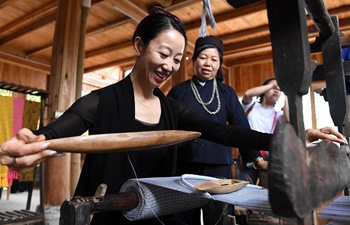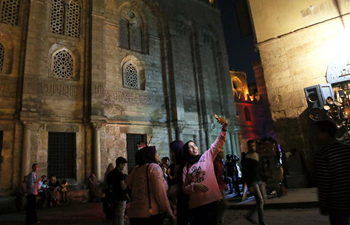UNITED NATIONS, April 19 (Xinhua) -- The top UN envoy in Colombia on Thursday stressed the need for a sustained drive to put the reintegration of former combatants of the rebel Revolutionary Armed Forces of Colombia (FARC) on a more solid basis before the end of the government's mandate.
"Weaknesses in this effort can only increase the risk of the drift of some ex-combatants to criminal groups such as those responsible for the tragic killings and kidnappings of Ecuadoran nationals (on the border)," Jean Arnault, head of the UN Verification Mission in Colombia, told the Security Council.
He said his mission is looking forward to the prompt approval of a decree that would allow former combatants to have land.
While it is too early to take stock of a peace process that has set ambitious and long-term goals, Arnault said his mission has already observed a notable reduction of violence in the congressional elections on March 11.
A series of institutions have been created to overcome the patterns of social, economic and political violence in the conflict areas, he said.
Throughout the implementation phase of the peace agreement between the government and FARC, circumstances have occasionally tested the commitment of the two parties to stay the course. They have stayed the course, Arnault said.
The last couple of weeks have also brought new challenges to the peace process, he said.
The arrest of one of the leaders of FARC on drug trafficking charges reverberated in a country that remained divided around the peace process, said Arnault.
Calls from the FARC leadership for calm and statement of resolve to continue to pursue the path of peace have been very important in addressing misgivings and mistrust among former combatants in the reintegration areas, he said.
The Colombian government has also stated its commitment to accelerating the implementation of the peace agreement, particularly with regard to reintegration, he said.
The Colombian government's negotiations with the National Liberation Army (ELN), another rebel group in the South American country, have resumed, Arnault reported.
The Catholic Church and the UN mission, which supported the implementation of the temporary cease-fire from October 2017 to early January 2018, have presented their recommendations to both parties to support their effort at reaching a more reliable cease-fire, he said.
The government and the ELN have reiterated their interest in UN support for the implementation of a future cease-fire, said Arnault.

















